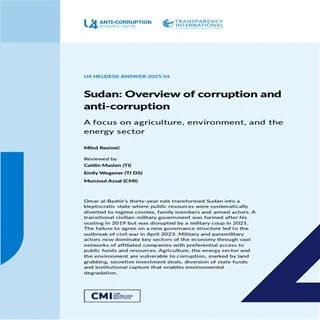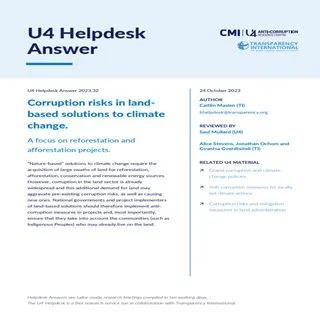By Miloš Resimić
Omar al-Bashir’s thirty-year rule transformed Sudan into a kleptocratic state where public resources were systematically diverted to regime cronies, family members and armed actors. A transitional civilian-military government was formed after his ousting in 2019 but was disrupted by a military coup in 2021. The failure to agree on a new governance structure led to the outbreak of civil war in April 2023. Military and paramilitary actors now dominate key sectors of the economy through vast networks of affiliated companies with preferential access to public funds and resources. Agriculture, the energy sector and the environment are vulnerable to corruption, marked by land grabbing, secretive investment deals, diversion of state funds and institutional capture that enables environmental degradation.
Bergen: U4 Anti-Corruption Resource Centre, Chr. Michelsen Institute. , U4 Help Desk,2025. 35p.




